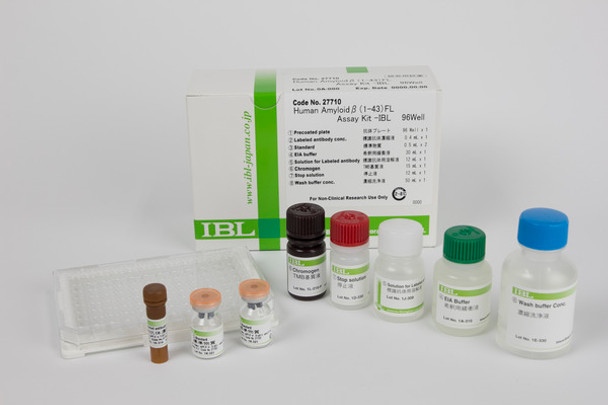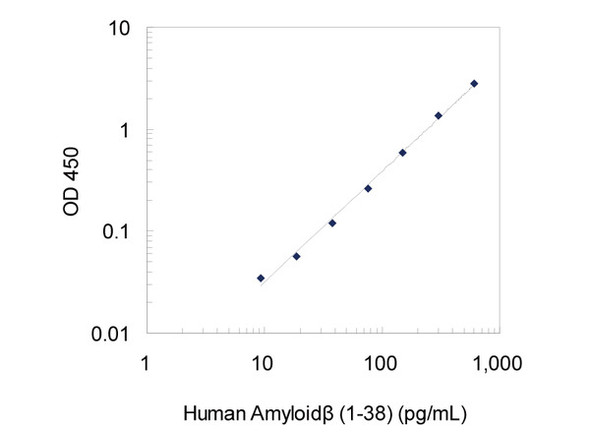Human Amyloidβ (1-43) (FL) Assay Kit | 27710
- SKU:
- 27710
- Availability:
- In Stock
- Intended Use:
- Research reagents
- Measuring Method:
- ELISA
- Sample Types:
- Human
- Measuring Samples:
- CSF, Cell culture supernatant
- Measurement Range:
- 2.34 - 150 pg/mL
- Package Size:
- 96 Well
Frequently bought together:
Description
Human Amyloidβ (1-43) (FL) Assay Kit | 27710
The first case of Alzheimer's disease (AD) was defined and reported in 1907 by the German scientist, Dr. A. Alzheimer. His studies have shown that this is the main cause of dementia in the elderly. The plaques which appear in the brains of individuals who suffer AD are mostly constituted by the Amyloidβ protein (Aβ). Aβ is a peptide which consists of 40 or 42 (43) amino acids, and reports show that this is cleaved from β- and γ- secretase from the amyloid precursor protein. APP is a trans-membrane protein consisting of 695, 751, or 770 amino acids. Reports have shown many variants of Aβ exist and are clarified into the culture supernatant from the APP cDNA transfected mouse neuroblastoma cell. Many types of Aβ molecules are targeted in AD research. A process, Aβ40 is produced by cleaving from Aβ49 through Aβ46 and Aβ43, has been reported in tripeptide hypothesis, partly for that reason the interest in Aβ43 molecules has been growing. This kit can measure full-length (FL) molecules of Human Aβ (1-43).














